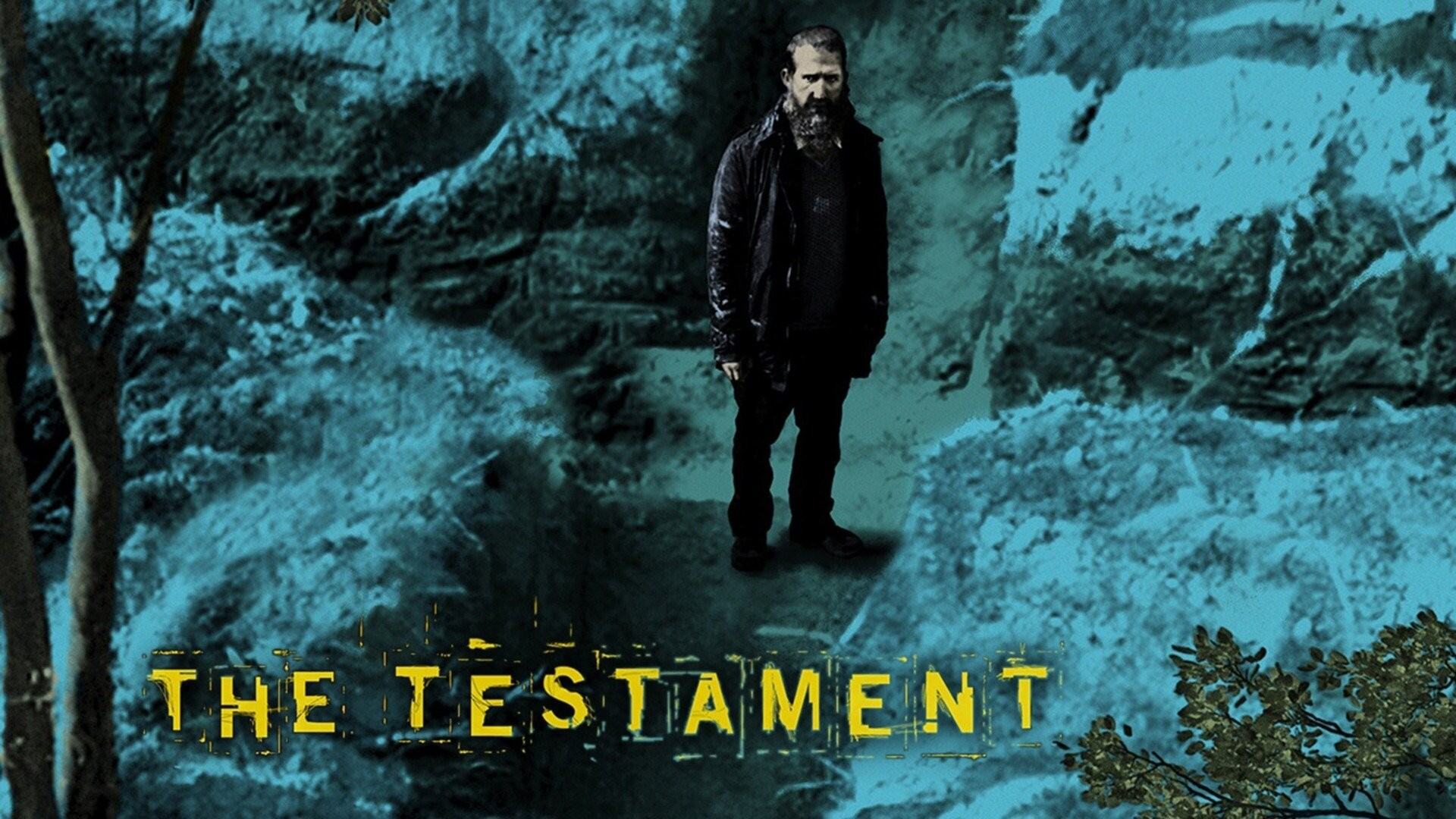
Are you a fan of thought-provoking and emotionally gripping movies? If so, then you might have come across the movie “Testament”. Released in 1983, this impactful film delves deep into the devastating aftermath of a nuclear war and its effects on a small community. Directed by Lynne Littman, “Testament” offers a unique perspective on the human condition and explores themes of resilience, love, and survival.
In this article, we will take a closer look at “Testament” and uncover 39 fascinating facts about this powerful movie. From its cast and production details to the critical acclaim it received, join us on this journey as we explore the depths of this iconic film.
Key Takeaways:
- “Testament” is a 1983 movie that shows the devastating effects of nuclear war on a small town, highlighting the importance of peace and the resilience of the human spirit.
- The film received critical acclaim for its realistic portrayal of post-apocalyptic life and continues to be a powerful reminder of the dangers of nuclear warfare.
The movie Testament was released in 1983.
The heart-wrenching drama Testament, directed by Lynne Littman, made its debut in 1983, leaving a lasting impact on audiences worldwide.
It was inspired by the novel “The Last Testament” by Carol Amen.
The movie Testament is a poignant adaptation of Carol Amen’s thought-provoking novel, exploring the devastating consequences of a nuclear war.
Testament stars Jane Alexander as the lead character.
Jane Alexander delivers a powerful and emotionally charged performance as Carol Wetherly, a mother trying to protect her family in the aftermath of a nuclear catastrophe.
It takes place in a small California town.
The events of Testament unfold in the fictional town of Hamelin, located in Northern California, depicting the struggles faced by its inhabitants in a post-apocalyptic world.
The movie examines the effects of nuclear war on a community.
Testament delves into the harrowing aftermath of a nuclear attack, portraying the physical, emotional, and moral dilemmas faced by the surviving townspeople.
The film explores themes of hope, resilience, and the strength of the human spirit.
Through its compelling narrative, Testament explores the indomitable human spirit in the face of unimaginable tragedy, highlighting the power of hope and resilience.
Testament was critically acclaimed for its realistic portrayal of the post-apocalyptic world.
The movie received widespread praise for its authentic and haunting depiction of the aftermath of a nuclear war, immersing viewers in the stark realities of such a catastrophic event.
It was nominated for an Academy Award for Best Adapted Screenplay.
The thought-provoking screenplay by John Sacret Young earned a well-deserved nomination at the prestigious Academy Awards, recognizing its powerful storytelling and literary adaptation.
Testament won the Grand Prize at the Cannes Film Festival.
The film was honored with the Grand Prize at the Cannes Film Festival, solidifying its status as a cinematic masterpiece that resonated with audiences and critics alike.
The movie serves as a stark reminder of the dangers of nuclear weapons.
Testament’s chilling portrayal of the aftermath of a nuclear war serves as a poignant reminder of the devastating consequences and the urgent need for peace.
The film features a stellar ensemble cast.
Apart from Jane Alexander’s unforgettable performance, Testament boasts an exceptional ensemble cast, including Kevin Costner, Rebecca De Mornay, Lukas Haas, and many other talented actors.
Testament received numerous accolades for its powerful storytelling.
The movie garnered widespread recognition for its impactful narrative, earning accolades from various film festivals and critics, further solidifying its place in cinema history.
It was praised for its realistic and non-sensationalized depiction of the nuclear aftermath.
Unlike many other films depicting nuclear disasters, Testament stands out for its restrained and authentic portrayal, avoiding sensationalism and focusing on the human experience.
The movie’s haunting score adds to its emotional impact.
The haunting musical score, composed by James Horner, enhances the emotional intensity of the film, immersing viewers in the despair and resilience of the characters.
Testament remains a powerful and relevant film today.
Decades after its release, Testament continues to be a powerful and relevant cinematic work, reminding audiences of the potential horrors of nuclear warfare and the importance of peace.
It was filmed in Sonoma County, California.
The natural landscapes of Sonoma County provide the backdrop for the film, further adding to the realism and authenticity of the post-apocalyptic setting.
Testament received a limited release initially but gained immense recognition through word of mouth.
While the film initially had a limited release, its profound impact and compelling storytelling soon garnered widespread acclaim, thanks to positive word-of-mouth from audiences.
The movie provides a riveting exploration of the human capacity for love and sacrifice.
Amidst the desolation and despair, Testament highlights the extraordinary acts of love and sacrifice that ordinary people are capable of, showcasing the resilience of the human spirit.
It was nominated for multiple Golden Globe Awards.
The film received several nominations at the Golden Globe Awards, including Best Motion Picture – Drama, further solidifying its status as a cinematic gem.
Testament offers a thought-provoking reflection on the importance of family bonds.
The movie underscores the significance of family bonds in times of crisis, capturing the unwavering love and determination of a mother protecting her children in a world on the brink of collapse.
It presents a gripping narrative that will leave audiences contemplating its themes long after the credits roll.
With its unforgettable storyline and powerful performances, Testament leaves a lasting impact on viewers, prompting introspection and contemplation about the fragile nature of humanity.
Testament’s cinematography skillfully captures the desolate atmosphere of a post-nuclear world.
The cinematography of the film, masterfully done by Steven Poster, effectively captures the desolation and bleakness of a world ravaged by nuclear devastation.
The movie addresses the ethical dilemmas faced by those fighting for survival.
Testament explores the moral complexities and difficult choices faced by individuals in the wake of a catastrophic event, highlighting the lengths people will go to protect the ones they love.
It received the National Board of Review Award for Best Actress.
Jane Alexander’s powerful portrayal in Testament earned her the well-deserved recognition of the National Board of Review, honoring her exceptional performance.
The movie’s screenplay beautifully captures the subtle nuances and emotions of its characters.
John Sacret Young’s screenplay brings the characters of Testament to life, expertly conveying their inner struggles and emotions with depth and authenticity.
Testament was praised for its realistic portrayal of a community coming together in times of crisis.
The film showcases the strength and resilience of a community faced with adversity, highlighting the power of unity and compassion in the darkest of times.
It remains a powerful testament to the devastation of nuclear warfare.
Decades after its release, the movie continues to serve as a stark reminder of the devastating impact of nuclear war, urging humanity to strive for peace and disarmament.
The film’s haunting depiction of loss and grief strikes a chord with audiences.
Testament’s portrayal of the profound loss and overwhelming grief experienced by its characters resonates deeply with viewers, evoking empathy and reflection.
It was praised for its realistic and heartbreaking portrayal of the effects of radiation sickness.
The movie confronts the horrifying consequences of radiation sickness head-on, presenting a stark and unflinching depiction that is both realistic and deeply affecting.
Testament’s powerful message continues to be relevant in a world grappling with global conflicts.
In an era of ongoing global tensions, Testament’s powerful message about the importance of peace and humanity’s responsibility to prevent nuclear catastrophe remains deeply relevant.
It is considered a landmark film in post-apocalyptic cinema.
The impact and influence of Testament on the post-apocalyptic genre cannot be overstated, as it continues to inspire and inform subsequent films exploring similar themes.
The movie’s emotional depth resonates with audiences of all ages.
The emotional depth and profound themes explored in Testament transcend generations, making it a film that resonates with viewers irrespective of their age.
It received the Special Jury Prize at the Sundance Film Festival.
The movie was honored with the Special Jury Prize at the renowned Sundance Film Festival, recognizing its artistic merit and its contribution to the medium of cinema.
Testament’s powerful performances elicit strong emotional responses from viewers.
The actors’ compelling performances in Testament, depicting the struggles and resilience of their characters, evoke strong emotional responses from audiences, further cementing the film’s impact.
It features a realistic portrayal of the challenges faced by children in a post-apocalyptic world.
The movie sensitively explores the hardships faced by children in the aftermath of a nuclear war, shedding light on their resilience and the loss of their innocence.
Testament has been praised for its authentic and unvarnished depiction of human suffering.
The film’s raw and unflinching portrayal of human suffering in the aftermath of a nuclear disaster has garnered critical acclaim for its authenticity and honesty.
It has been recognized as a significant contribution to the anti-nuclear movement.
Testament’s powerful portrayal of the devastating consequences of nuclear warfare has played a significant role in raising awareness and advocating for nuclear disarmament.
The movie’s intimate storytelling approach adds to its impact.
Through its intimate and personal narrative, Testament manages to convey the magnitude of a global catastrophe by focusing on the individual experiences of its characters.
Testament’s legacy as a powerful and influential film endures.
Decades after its release, Testament continues to be celebrated as a thought-provoking and poignant film, solidifying its legacy as an enduring masterpiece of cinema.
So there you have it, The 39 Facts about the movie Testament! From its powerful performances to its impact on the anti-nuclear movement, this film is undeniable in its significance. Testament remains a powerful reminder of the fragility of humanity and the importance of peace.
Conclusion
Testament is a thought-provoking film that delves into the harrowing realities of the aftermath of a nuclear attack. Through its gripping storyline, powerful performances, and emotional depth, it sheds light on the resilience of the human spirit in times of tragedy. The movie serves as a stark reminder of the devastating consequences of nuclear warfare and the importance of peace. Testament has rightly earned its place as one of the most impactful and memorable films in the genre, leaving a lasting impression on viewers and prompting discussions on the fragility of life and the choices we make.
FAQs
1. What is the plot of Testament?
The plot of Testament revolves around a small suburban community as they grapple with the aftermath of a nuclear attack. The film focuses on the struggles of a family as they try to survive and maintain their humanity amidst the despair and chaos.
2. Who directed Testament?
Testament was directed by Lynne Littman, known for her realistic and emotionally impactful storytelling.
3. When was Testament released?
The movie was released in 1983 and received critical acclaim for its realistic portrayal of the post-apocalyptic world.
4. Who are the main actors in Testament?
The film features a talented cast, including Jane Alexander, William Devane, and Lukas Haas, who deliver powerful performances that enhance the emotional impact of the story.
5. Is Testament based on a book?
Yes, Testament is based on a 1974 novel of the same name written by Carol Amen.
6. Does Testament depict the effects of nuclear war realistically?
Yes, Testament is renowned for its realistic portrayal of the aftermath of a nuclear attack, emphasizing the emotional toll and societal breakdown that occurs in such a catastrophic event.
7. What is the message conveyed by Testament?
Testament conveys a powerful message about the importance of love, resilience, and human connection in the face of unimaginable tragedy. It serves as a stark reminder of the need for global peace and nuclear disarmament.
Was this page helpful?
Our commitment to delivering trustworthy and engaging content is at the heart of what we do. Each fact on our site is contributed by real users like you, bringing a wealth of diverse insights and information. To ensure the highest standards of accuracy and reliability, our dedicated editors meticulously review each submission. This process guarantees that the facts we share are not only fascinating but also credible. Trust in our commitment to quality and authenticity as you explore and learn with us.


